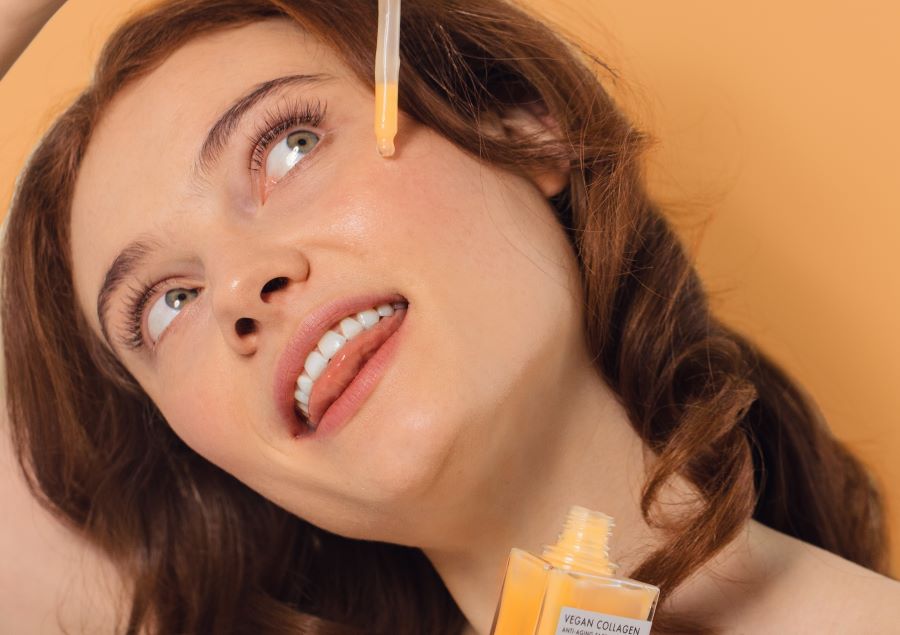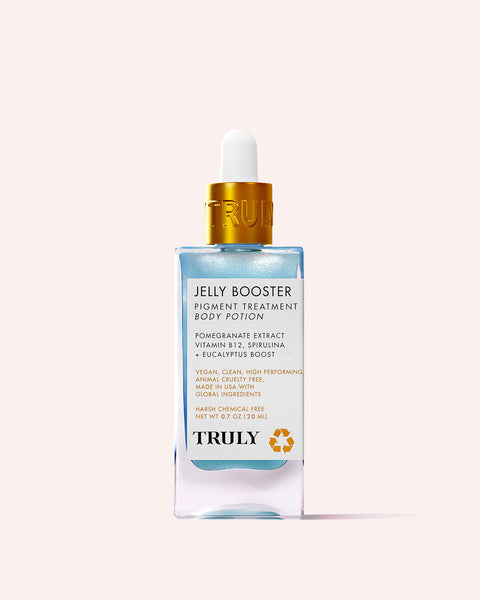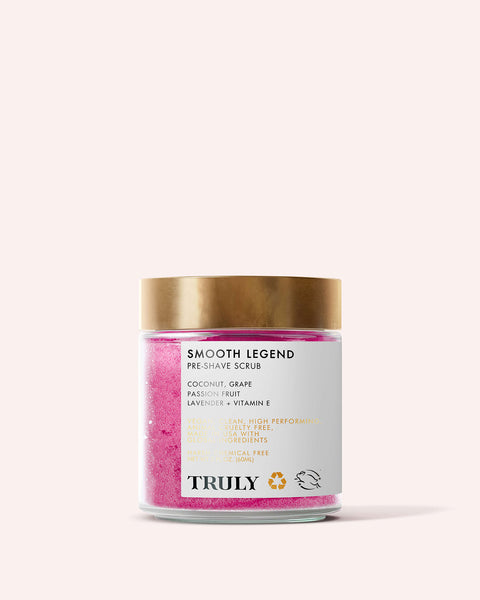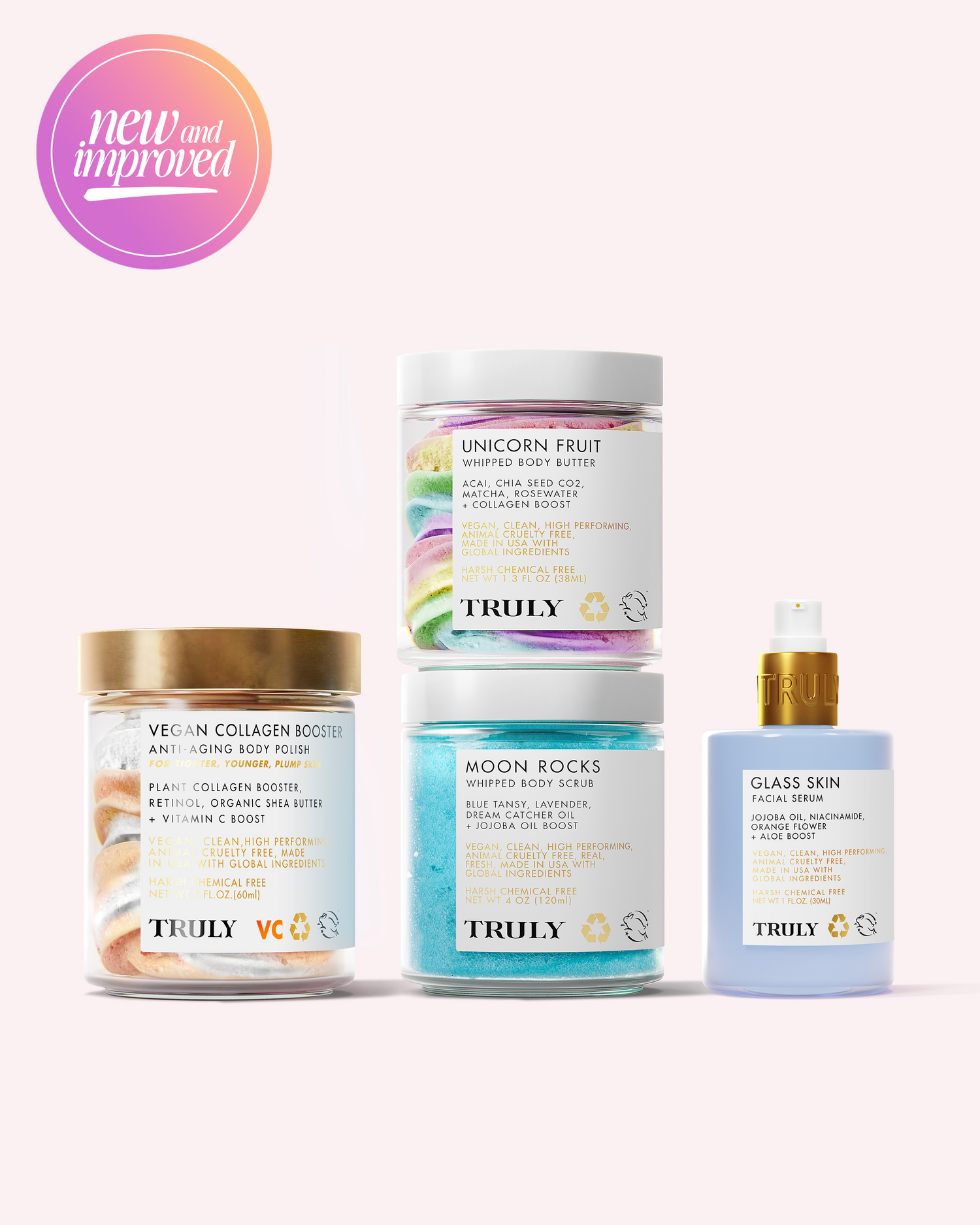Does Retinol Help with Dark Spots?

It’s known for its anti-aging powers but does retinol help with dark spots? Dark spots can appear anywhere on your body and while they’re not usually an indication of anything serious, it’s still important to have regular checkups with your dermatologist to monitor any skin changes.
Retinol is a vitamin A derivative that may be able to improve the appearance of dark spots. Thanks to its resurfacing properties, retinol can be effective for treating uneven skin tone and texture. Here’s everything you should know about using retinol for dark spots.
Does Retinol Help with Dark Spots?
Retinol is a type of retinoid that’s known for its transformative effects on the skin. It combats acne, increases cell turnover, softens fine lines and wrinkles, and boosts collagen production. Does retinol fade dark spots? According to dermatologists, topical use of retinol can improve the appearance of dark spots—also known as hyperpigmentation—over time with regular use.
Dark spots occur for a variety of reasons, from acne scars to sun damage. When inflammatory conditions damage skin cells, pigment is released into the deeper level of your skin, resulting in discoloration. Everything from acne scars to sunspots, melasma and eczema can leave hyperpigmentation once healed.
So, how does retinol help with dark spots? Retinol helps because of its ability to increase skin cell turnover, which helps to fade dark spots. Essentially, it works as an exfoliant that removes dead skin cells while stimulating the production of new ones, resulting in a clearer, more even complexion. Retinol also inhibits the production of tyrosinase, the enzyme responsible for dark spot development.
On top of all that, retinol encourages collagen production, which also promotes skin cell turnover. This means it helps peel and diminish dark spots and discoloration. Plus, you get the added benefit of improved skin elasticity, resulting in firmer, smoother skin.
How to Use Retinol for Dark Spots

All skin tones and skin types can benefit from using retinol for dark spots. In fact, darker skin tones may notice a more significant improvement. This is because post-inflammatory hyperpigmentation is most commonly seen in skin of color.
If you’re using retinol for the first time, start slow. Use it one to two times a week, and always at night as sunlight breaks down retinol, which can make it less effective. Retinol is a potent skincare ingredient that can cause skin irritation, especially if you have sensitive skin. For that reason, it’s a good idea to see how your skin reacts before using it three times a week.
When applying your retinol products, less is more. Aim for a pea-sized amount of retinol serum or cream for the face. You might be tempted to slather on your retinol skincare products but to avoid unwanted side effects like redness, dryness, and irritation, stick to small amounts.
Start with a lower concentration of retinol to allow your skin to adjust to the active ingredient. The derms recommend looking for products with .25% retinol. If your skin isn’t sensitive, a 1% retinol would be more effective at managing hyperpigmentation.
Always remember to apply sunscreen with SPF 30 or higher when using retinol. Besides reducing your risk of skin cancer, SPF helps to preserve the effectiveness of retinol which can break down with sun exposure.
What is the Best Retinol for Dark Spots?
Does retinol help with dark spots? It certainly does. By speeding up cellular turnover, retinol promotes a more even complexion. Here are some of the best retinol products for dark spots to include in your skincare routine.
Truly Vegan Collagen Booster Set
SHOP NOW
Use this transformative routine to get a serious boost in collagen production. You get: a facial cleanser, serum, and mask plus a body polish, cream, and a luxe travel trunk. Each formula contains a skin-loving blend of retinol, vitamin C, and plant collagen booster to build collagen, restore elasticity, and resurface the skin. It’s the ultimate routine for treating fine lines, wrinkles, age spots, and hyperpigmentation.
Truly Boobie Routine
SHOP NOW
Got dark spots on your chest? Try the bestselling Acai Your Boobies line which works to exfoliate, tighten, and hydrate. It’s got retinol and acai which work in tandem to improve skin texture and tone while brightening your entire bod. Plus, it’ll leave you smelling like sweet, shimmering blackberry.
Truly Dulce De Leches Routine
SHOP NOW
An innovative formula that features three sculpting treatments that target everything from sagging to signs of aging and dark spots. Powerhouse ingredients like retinol, hyaluronic acid, and guarana work together to boost collagen, increase elastin, and speed cell turnover for visibly smoother, tauter, and clearer skin. It features a warm caramel-scented polish, moisturizer, and serum.
FAQs
Will Retinol Remove Dark Spots?
Retinol helps diminish dark spots by inhibiting melanin production through the regulation of the enzyme tyrosinase. It accelerates skin cell turnover, shedding pigmented cells and promoting the growth of new, evenly pigmented ones. This process gradually fades existing hyperpigmentation. Retinol also stimulates collagen production, enhancing skin texture and contributing to a more even tone. When combined with other brightening ingredients like vitamin C, its effectiveness is further boosted.
How Often to Use Retinol for Dark Spots?
Initially, it’s best to use retinol 1-2 times a week and gradually increase to every other night, depending on how your skin responds. Always follow the instructions on the product and consult with a dermatologist if you have concerns.
If your skin isn’t on the sensitive side, you should be able to tolerate nightly use of retinol. However, be sure to start slow and see how your skin responds. If you experience side effects such as redness or flaking, limit use to every other night or less frequently if needed.
How Fast Does Retinol Fade Dark Spots?
Retinol works by promoting cell turnover, which means it helps shed old, pigmented skin cells and encourages the growth of new, evenly pigmented cells. Some people may notice improvements in dark spots within a few weeks, while others may take longer to see significant changes. Most dermatologists agree that it will take several weeks before you see a visible improvement in the appearance of your skin. Consistent and long-term use is often necessary to achieve the best results.
Does retinol help with dark spots? Retinol can indeed be helpful when it comes to treating dark spots and discoloration. Luckily, there are plenty of over-the-counter retinol products you can try for fading dark spots. Stay consistent and patient in order to see the best possible results. If you have any concerns over using retinol for dark spots or you have a skin condition, consult a dermatologist before using. All in all, retinol is a great treatment for dark spots.
Watch our tutorial on how to fade dark spots fast:











